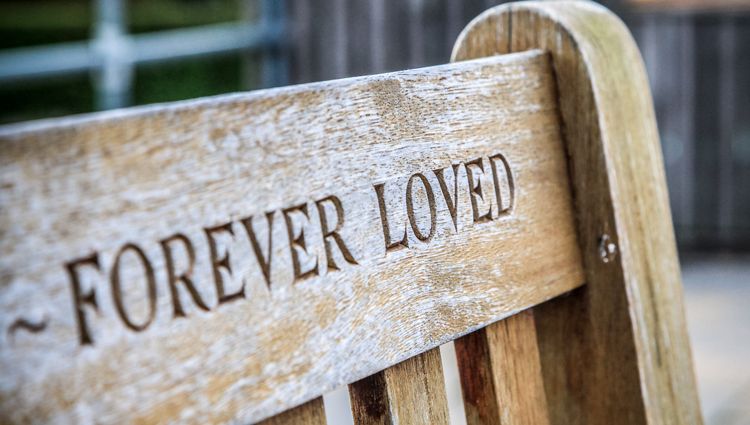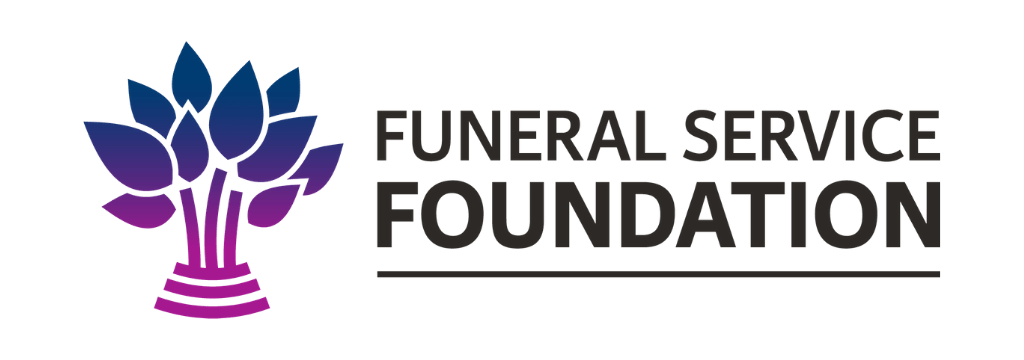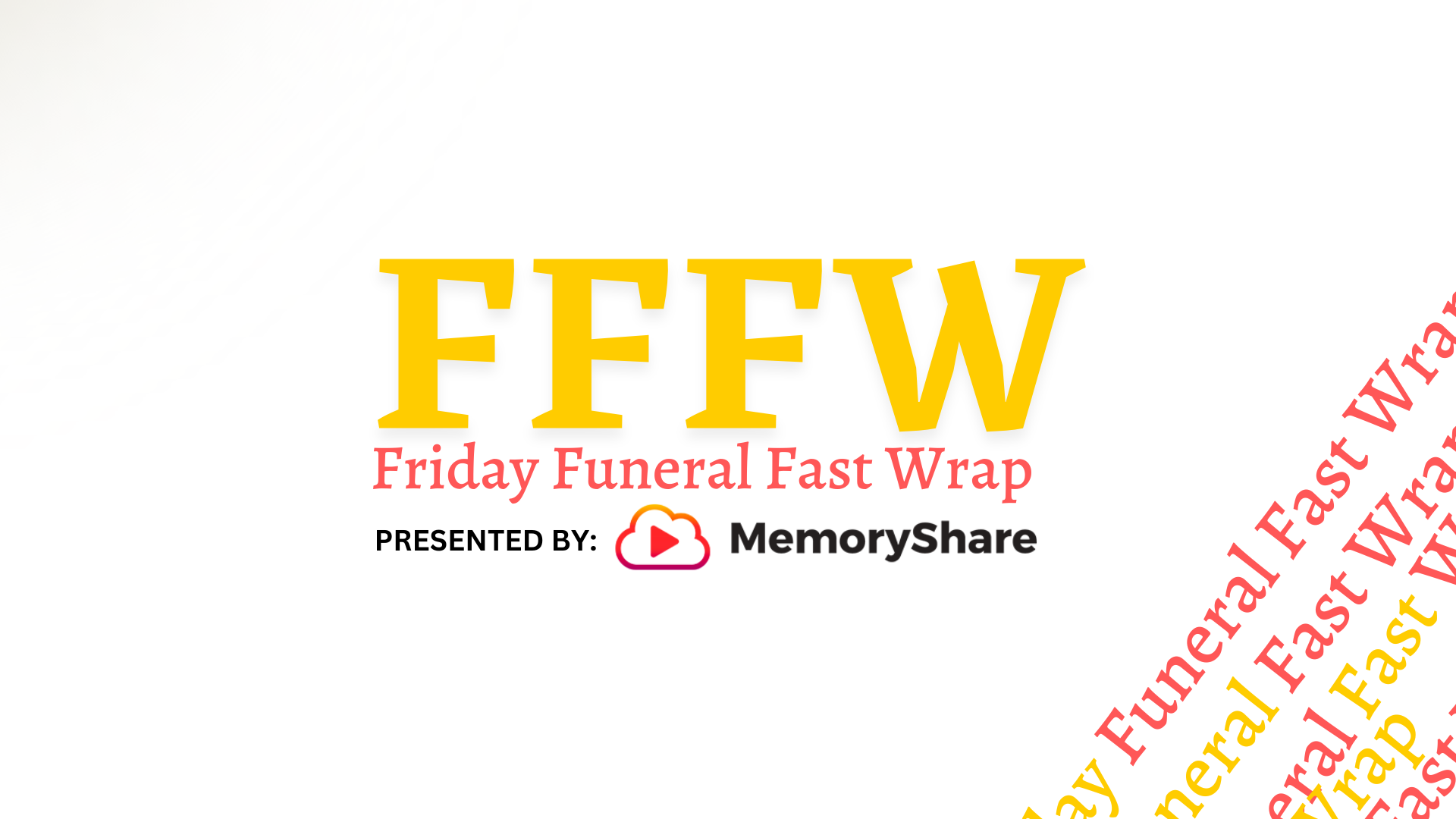Brookfield, Wis. – A majority of Americans believe funerals and memorial services are a valuable and important part of healing after the death of a loved one – and that funeral professionals can help them meaningfully honor a life – according to the results of a nationwide online survey conducted from March 31 – April 10, 2015 among 1,238 U.S. adults age 40+ and 305 U.S. adults age 20-39 by Harris Poll on behalf of the Funeral and Memorial Information Council (FAMIC).
“While funerals and memorial services may be different from what they were 25 years ago when we first began surveying consumers, the fact remains that memorialization is important when a loved one dies,” said Jeffrey Wages, a funeral director who serves as president of FAMIC. “And, much like they did 25 years ago, consumers trust funeral directors to provide compassionate guidance and service during a very difficult time.”
Funerals and Memorial Services Valued By Consumers
Among adults age 40 and older, 82 percent said a service was helpful in paying tribute to or commemorating the life of a friend or family member, down from 95 percent in 2010. Eighty percent felt services they attended had meaning and value and reflected the life of the deceased; in 2010, 92 percent felt the same way. In 2015, 72 percent believed services they attended were an important part of the healing process; in 2010, 87 percent felt funerals were instrumental to healthy healing.
“The public continues to demonstrate an understanding of the value of funeral and memorial services and the role they play in healthy healing after the death of a loved one,” said Wages. “However, numbers were down from 2010, suggesting a need for funeral professionals to increase their efforts to educate the public and to make sure their offerings align with consumers’ changing needs.”
Funeral Professionals Are the Experts Consumers Rely On
Funeral homes and funeral directors remain the top source of information for both making arrangements (65 percent) and selecting merchandise (66 percent) for adults over the age of 40; friends and relatives are the second most popular source of information for making arrangements (64 percent) and purchasing merchandise (59 percent).
In 2015, 86 percent of adults over the age of 40 said funeral professionals were important in making funeral arrangements, compared with 93 percent in 2010. Eighty-five percent said funeral professionals take special care to make the ceremony and arrangements reflect the wishes of the family, ten points less than the ranking in 2010. Eighty-two percent of respondents said people working in funeral services are professional and competent (89 percent in 2010). Overall, 82 percent said funeral professionals provide valuable services (94 percent in 2010).
The majority of consumers would not change anything about their experiences with funeral homes – in fact, 87 percent of adults over the age of 40 who had previously been involved in selecting a funeral provider would choose the same one for a future need, and 92 percent would make similar arrangements in the future.
For the 15 percent who would change something about their experiences with funeral homes, cost was the main concern (36%). This has remained a primary concern since 2004.
“While this study shows a decline in consumer ratings from 2010, there is a lot to be proud of – rankings in the 80th percentile are very good,” said Wages. “The results perhaps indicate a need to better communicate the value of what we do.”
Have the Talk of A Lifetime Campaign
Awareness of Have the Talk of a Lifetime, FAMIC’s consumer education campaign introduced in 2013, is low, but some adults 40+ – 46 percent – are already having conversations with friends/family about how they want to be remembered during their funeral or memorial service.
Regardless of whether they have engaged in a conversation with friends/family or not, 89 percent feel their family understands what has mattered most in their lives and how they have made a difference. Eighty-nine percent feel a discussion about their end-of-life wishes would be meaningful.
Only 14 percent of adults over the age of 40 were aware of Have the Talk of a Lifetime, which is in an initial grassroots phase; however, once introduced to the campaign, 40 percent said the campaign messages had a positive effect on their perceptions of the funeral profession.
“We are encouraged by this data, especially considering that Have the Talk has been a grassroots effort,” said Wages. “In 2016, we will begin a national advertising campaign to augment the efforts of local funeral homes. We expect these national ads will bring even greater awareness to Have the Talk of a Lifetime, and funeral directors will see more families engaging in conversations with friends/family.”
Interest in Preplanning Remains High
In 2015, 69 percent of adults over the age of 40 indicated they would prefer to pre-arrange their own service; however, only 17 percent had made arrangements. Sixty percent of those who have pre-arranged their services have prepaid for some or all of them. The main reason for doing so (74 percent) was so survivors wouldn’t have to worry about them or pay the costs, potentially eliminating stress for their friends/family after they are gone.
Of those who felt preplanning was important but had not yet pre-arranged services, 55 percent said they were likely to do so within the next five years.
“As many funeral professionals have already discovered, Have the Talk of a Lifetime is a great tool to help families begin the preplanning process,” said Wages. “It asks families to take a step back and, before they start discussing specific details of their arrangements, share stories about their loves – that they discuss the things that really matter in life. Life stories can serve as the foundation for planning a meaningful memorialization.”
Interest in Cremation Continues to Rise
Only 34 percent of adults age 40 and older own cemetery property, down from 50 percent in 2010. Consumers are highly interested in cremation, both for themselves (68 percent) and as an option they would choose for a friend or family member (65 percent). Saving money (22 percent) is the prime reason for choosing cremation; those who would not choose cremation attribute it to their own personal preference (30 percent).
While more adults 40+ may be choosing cremation, they also want to honor the lives of their friends/family through a ceremony. Only 14 percent of people who prefer cremation for a loved one would choose to not have a funeral or memorial service. Thirty-five percent would choose a memorial service with photographs of their loved one present (the body would not be present); 27 percent would want a memorial service with their loved one’s cremated remains present in an urn at the service; and 25 percent would want a funeral with the body present in a casket prior to cremation.
Green Funerals and Pet Services
Awareness of green funeral options remained the same as it was in 2010 – at 34 percent – however, interest has grown. In 2015, 64 percent of adults 40+ said they would be interested in green funeral options, compared with 43 percent in 2010.
Adults are more aware of pet memorial services now (67 percent) than they were five years ago (57 percent), but consistently do not feel open to it (20 percent in 2015 versus 17 percent in 2010).
Young Adults Have a Different Approach
Younger adults (ages 20-39) have distinctly different expectations when making funeral arrangements and interacting with funeral professionals than those who are older. They are more likely to:
-
Create or attend online/virtual memorialization sites (create a virtual memorial: 5 percent versus 2 percent of those age 40 and older; attend a virtual memorial: 39 percent versus 26 percent of those age 40 and older).
-
Hear about funeral service information through social networking, in addition to more traditional sources like obituaries (51 percent versus 23 percent of adults age 40 and older).
-
Allow their friends/relatives to pre-arrange funeral/memorial options for them (42 percent versus 31 percent of those over the age of 40).
-
Use the internet to “crowdsource” funds for funeral/memorial costs (17 percent versus 4 percent of those age 40 and older).
Background
FAMIC commissioned the first study of the public’s attitudes toward ritualization and memorialization in September 1990. Subsequent waves were conducted in 1995, 1999, 2004, 2010 and 2015 making this one of the most comprehensive and long-standing consumer research projects in funeral service. The goal of this research is to better understand the personal values driving decision-making behavior as it pertains to funeral service; to learn more about attitudes toward pre-planning, cremation, monuments, cemeteries and other aspects of memorialization; and to analyze changes in attitudes over time.
The 2015 wave was conducted online from March 31 – April 10, 2015 among 1,238 U.S. adults age 40+ and 305 U.S. adults age 20-39 by Harris Poll on behalf of FAMIC. The research was transitioned from phone in past waves to online in 2015. When reporting on the 2015 results, we have used an “adjusted base” – by excluding the “don’t know/refused” and “none” options (which were volunteered in the past) from the 2015 results and reporting on the revised percentages to correct for any mode-driven differences observed. The sample was weighted to ensure that the data are balanced and that they accurately represent the population nationally. Propensity score weighting was also used to adjust for consumers’ propensity to be online.
Funeral service professionals who wish to review the study results may contact FAMIC to obtain either the executive summary (free to funeral professionals who are members of one of the 11 FAMIC organizations; $750 for nonmembers) or full report ($5,000 for funeral professionals who are members of a FAMIC organization; $7,500 for nonmembers). Visit
www.famic.org to download an order form or call
262-814-1544.
About the Funeral and Memorial Information Council
Since 1991, FAMIC has been committed to making available to the public direct and open information regarding deathcare and memorialization from the leading associations of service providers and businesses. FAMIC recently launched Have the Talk of a Lifetime, a consumer education outreach effort to urge families to talk with loved ones about life, the things that matter most and how they want to be remembered when they die. FAMIC members include: Casket & Funeral Supply Association; Cremation Association of North America; Funeral Service Foundation; International Memorialization Supply Association; International Order of the Golden Rule; Life Insurers Council; Monument Builders of North America; National Concrete Burial Vault Association; National Funeral Directors & Morticians Association; National Funeral Directors Association; and Selected Independent Funeral Homes.
About Harris Poll
Over the last 5 decades, Harris Polls have become media staples. With comprehensive experience and precise technique in public opinion polling, along with a proven track record of uncovering consumers’ motivations and behaviors, Harris Poll has gained strong brand recognition around the world.
Contact us for more information.
www.nielsen.com/us/en/solutions/reputation-management.html




